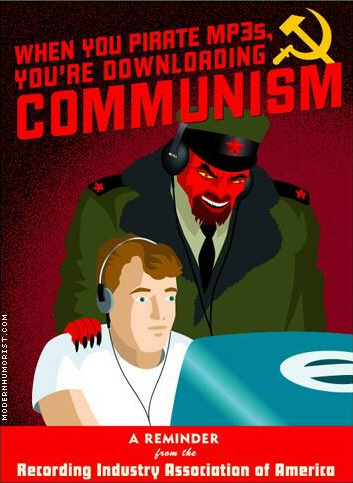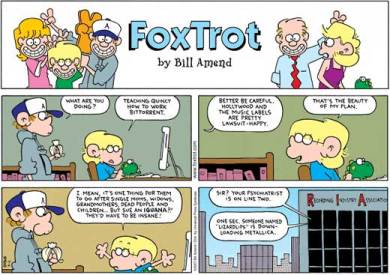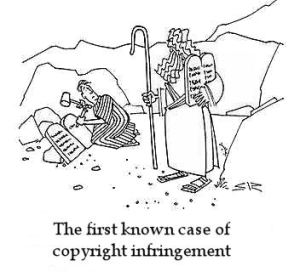This may be old news to most, but the Recording Industry Association of America (RIAA) has sent tens of thousands of letters to people demanding compensation for music illegally downloaded over the internet. The fines usually range between $3,000 to $5,000, and people usually pay it.
Joel Tenenbaum, who was charged with downloading seven songs, decided to stand up to the RIAA with the help of his mother. Apparently, most people in these cases represent themselves, which has led to default judgments for the RIAA.
Luckily, Billion Dollar Charlie Nesson has recently come to Tenenbaum’s aid. That name should sound familiar to law students who read A Civil Action. An entire chapter was dedicated to the Harvard professor.
Nesson and his army of Harvard Law Interns are airing out the RIAA’s dirty laundry by placing all of the court proceedings online. Want to hear the RIAA’s deposition of Tenenbaum? The podcast is online. Want to read the pleedings? They are there too.
Here is an excerpt from Tenenbaum’s argument:
The Recording Industry Association of America (RIAA) is in the process of bringing to bear upon the defendant, Joel Tenenbaum, the full might of its lobbying influence and litigating power. Joel Tenenbaum was a teenager at the time of the alleged copyright infringements, in every way representative of his born-digital generation. The plaintiffs and the RIAA are seeking to punish him beyond any rational measure of the damage he allegedly caused. They do this, not for the purpose of recovering compensation for actual damage caused by Joel’s individual action, nor for the primary purpose of deterring him from further copyright infringement, but for the ulterior purpose of creating an urban legend so frightening to children using computers, and so frightening to parents and teachers of students using computers, that they will somehow reverse the tide of the digital future.
The plaintiffs in the suit and the RIAA are abusing law and this court’s civil process. Because Joel Tenenbaum allegedly downloaded seven songs from a file-sharing network comprised of millions of his peers doing likewise, the plaintiffs have already imposed upon him process filling a docket sheet running back over years. Representing himself pro se with help from his mother he has responded with constitutional defenses and a counterclaim against the plaintiffs and against the RIAA for their abuse of law and this court’s civil process.
Joel challenges the constitutionality of the process and statute being wielded against him. The “Digital Theft Deterrence Act of 1999” is essentially a criminal statute, punitively deterrent in its every substantive aspect.
Joel seeks damages to compensate for the actual damage RIAA has done to him and his family. He claims the right to trial by jury including the right to offer proof and argument to the jury about what is right and what is wrong on both sides of this case. In the face of the onslaught the plaintiffs have imposed and are continuing to impose upon him he seeks justice from both judge and jury. At core his defenses and counterclaim raise a profoundly conceptual question: Is the law just the grind of a statutory machine to be carried out by judge and jury as cogs in the machine, or do judge and jury claim the right and duty and power of constitution and conscience to do justice.
Nesson and co. lost in A Civil Action. Do you think he could prevail this time?


